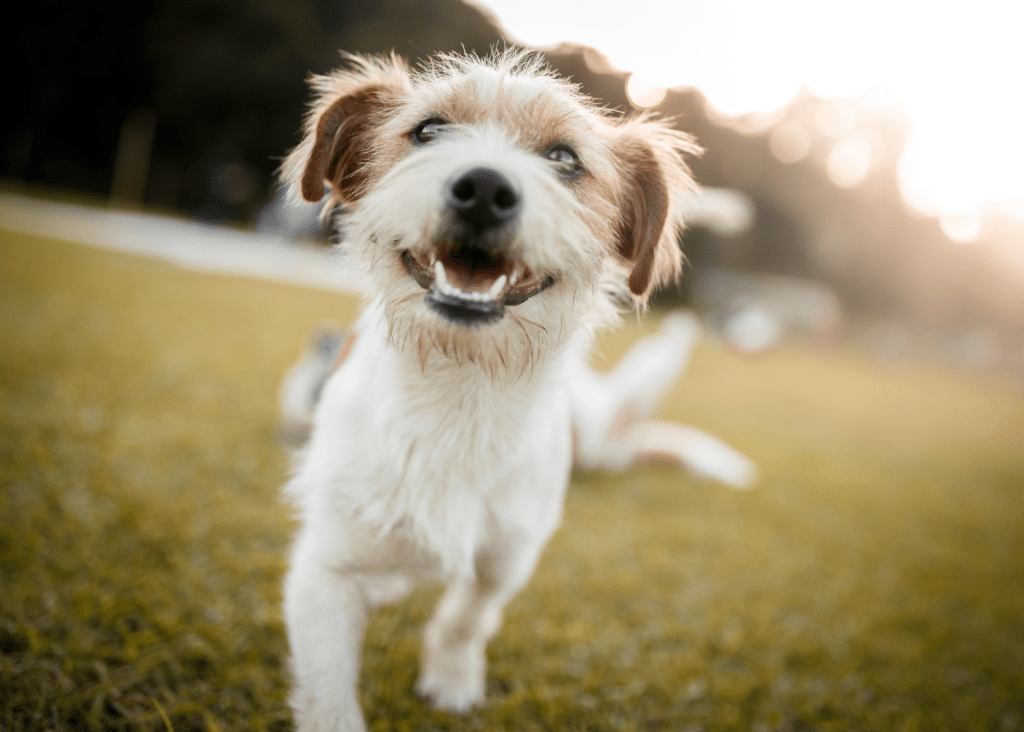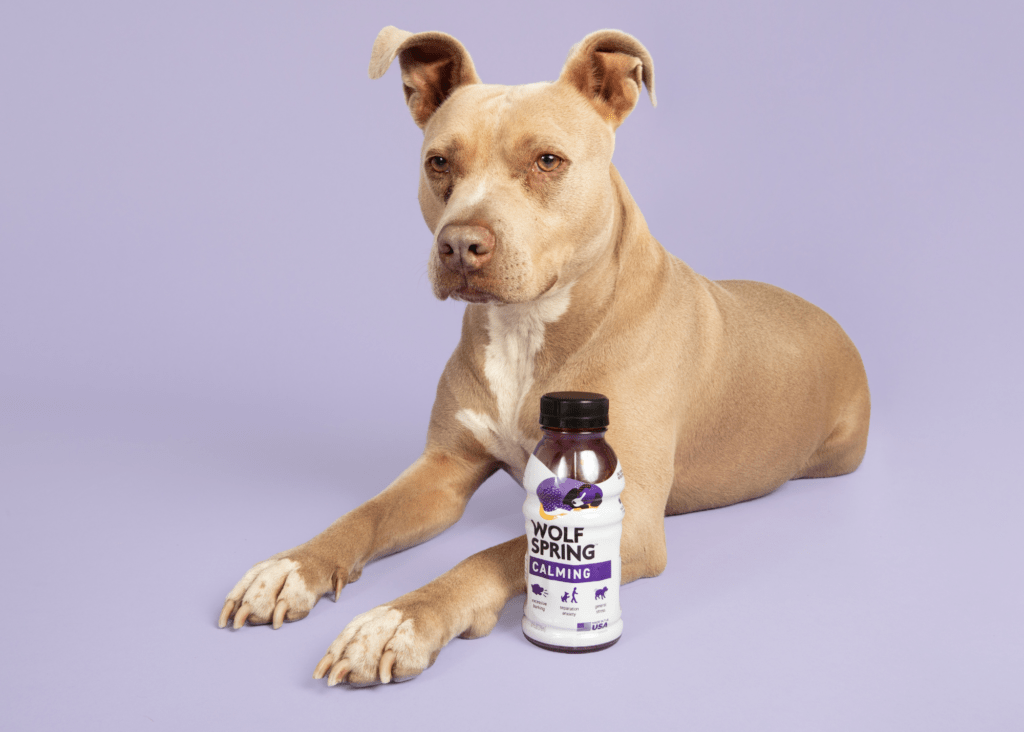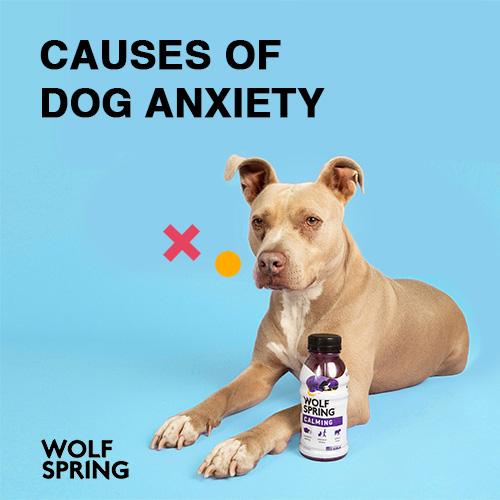What’s the Real Cause of Anxiety in Dogs?
Anxiety in dogs can present itself in many ways. Finding the real cause of anxiety in your dog can be a huge relief and the first step in finding the solution for your dog. Many dogs experience anxiety, in fact, more than 70% of dogs display signs of anxiety. Together, we’ll discuss the cause and treatment of your dog’s anxiety.

Cause Of Anxiety in Dogs
There are a variety of things that can cause anxiety in dogs. Below we go over the causes of dog anxiety.
Separation anxiety
Around 14% of dogs experience separation anxiety. Dogs who present separation anxiety are nervous and anxious when left alone for any period of time. They cannot find comfort while alone, and can exhibit undesirable behaviors when alone like excessive barking or crying, destruction, and urinating or defecating inside.
Fear of loud noises
July 4th may be dogs’ least favorite day… Many dogs are fearful of loud noises like fireworks, thunder, and construction, causing them great anxiety. These moments of anxiety can be only situational, but should be addressed.
Changes in environment
New environments can be anxiety inducing for dogs as well. Some dogs take longer to adjust to a move or a new experience.
Social anxiety
Though dogs are pack animals, some don’t appreciate company like others. Dogs can feel social anxiety when their humans have new people over, making the dog nervous and anxious.
General anxiety
Some dogs are anxious without a situation or fear pushing them to anxiety. Some breeds are more prone to anxiety than others, as well.
Rescue/shelter anxiety
Not all, but dogs who have been rescued or spent an extended period of time in a shelter often show signs of anxiety. They may seem more withdrawn or weary of strangers.
Age related anxiety
As dogs age, sometimes they begin to show signs of dementia which can make them scared and stressed. Also, as they age, dogs can lose their hearing or sight making them fearful and anxious.
Illness
Illness can also induce feelings of anxiety for dogs because they are unable to understand why they are feeling sick.

Signs of Anxiety
Anxiety in dogs can present itself in many different ways and recognizing the signs and triggers can help us pet parents manage their stress better! The signs of dog anxiety include:
- Aggression
- Urinating or defecating in the house
- Drooling
- Panting
- Destructive behavior
- Depression symptoms like loss of appetite and usual activity
- Excessive barking
- Pacing and restlessness
- Compulsive behaviors
Some anxiety behaviors, like aggression and destructive behavior, can be particularly dangerous, so it is best to find a solution to dog anxiety as soon as possible. Other behaviors might be a one off, like shaking during storms, while some, like urinating in the house, is a sign of severe separation anxiety.
Dog Anxiety Treatment
There are a myriad of ways pet parents can treat dogs with anxiety. The first step in treating dogs with anxiety is to speak to your veterinarian, who can help identify the type of anxiety and possible causes and triggers. They can help come up with a treatment plan, while also ruling out any other medical conditions that might be causing this anxiety.
Training and counterconditioning are also effective ways to reduce dog anxiety. By counterconditioning, dog owners should replace the anxious behavior with a good behavior like sitting or focusing changing the dog’s response to the stimuli responsible for anxiety,
With training, you can also try to desensitize by slowly introducing your dog to the source of its anxiety in small, regulated doses. Exposure and rewarding positive behavior can have a huge impact on anxious dogs.
Contacting a professional dog trainer can also help.

Supplements for anxiety in dogs
There are also many supplements on the market today for dog anxiety! Some, like Wolf Spring, are easy to give and recommended by vets. In new research, plant ingredients have shown amazing results for dogs like calmed behavior, relaxation, and stress relief.
For dogs with separation anxiety, there are steps to take before leaving them alone that can help reduce their anxiety. Taking your dog for a nice long walk to tire them out helps reduce feelings of anxiety. Giving a calming treat, powder, or liquid before leaving can also ease your dog’s anxiety. Leaving out interactive toys and bones is a good way to keep your dog busy and leave them with a positive feeling when you leave. Having a consistent schedule can help your anxious dog as well.
Though sometimes hard to predict when storms or fireworks are about to hit, dogs with anxiety from environmental noise can benefit from calming treats, liquids, and powders as well. Calming vests have also been found to be beneficial to reduce anxiety. Getting anxious dogs used to the loud sounds of thunder, construction, and fireworks by playing recordings at low volumes and passing treats to them so they have a positive experience when hearing the sound has also been proven successful.
Try stuffed Kongs, puzzles, bully sticks, or snuffle mats! Activities that keep your anxious dog occupied helps them focus on that instead of their stressor.
Use a sound machine. A white noise can relax dogs and weaken the loud sounds from outside.
Give your dog a quiet dark spot, like a crate or bathroom. Dogs like to have a den to cozy up in, which can be beneficial for stressed out dogs.
Conclusion – Finding the cause and solution for dogs with anxiety
Dogs can face anxiety, just as humans do. Working on a solution so our dogs can be calmer, happier dogs is important. The first step is always finding the cause, however. Once the cause of your dog’s anxiety, like separation or travel, is found, you and your vet can discuss the treatment plans mentioned in this article.
